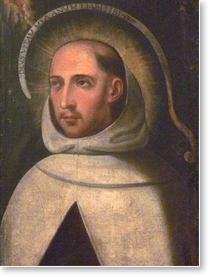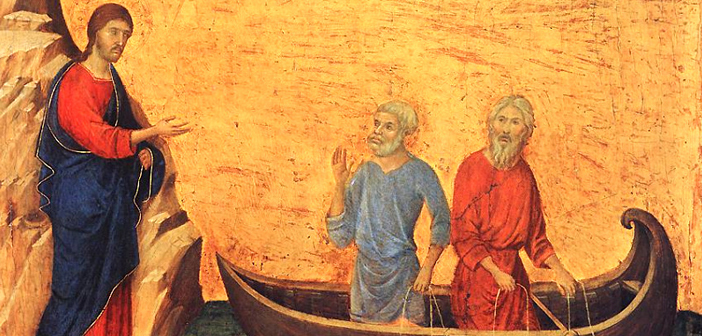COLLEGE-AGE ALUMNI MEN'S RETREAT
Tuesday, January 2 - Wednesday, January 3, 2018
Arrive at 2 pm. Tuesday; retreat concludes 4 pm Wednesday
Arrive at 2 pm. Tuesday; retreat concludes 4 pm Wednesday
MERIBAH RETREAT HOUSE
 For all but a few of us, most New Year's resolutions get packed away with the last of the Christmas decorations. By Epiphany our behavior and the whole New Year are just as tarnished as they were before January 1st.
For all but a few of us, most New Year's resolutions get packed away with the last of the Christmas decorations. By Epiphany our behavior and the whole New Year are just as tarnished as they were before January 1st.
 As we celebrate the fourth Sunday of Advent, we're fully aware of where God's love is leading us. The love might begin in the manger, but it inevitably will lead to the noonday sun reflecting on the Cross. God knows this, of course, but does not shy away from the pain that is coming. God's extravagant love is demonstrated in God's willingness to give sacrificially. God bestows the most precious gift, God's Son, knowing that this offering will not be appreciated, honored, or at times, even recognized.
As we celebrate the fourth Sunday of Advent, we're fully aware of where God's love is leading us. The love might begin in the manger, but it inevitably will lead to the noonday sun reflecting on the Cross. God knows this, of course, but does not shy away from the pain that is coming. God's extravagant love is demonstrated in God's willingness to give sacrificially. God bestows the most precious gift, God's Son, knowing that this offering will not be appreciated, honored, or at times, even recognized.




 To celebrate the bicentennials of the Daughters of Mary Immaculate and the Society of Mary, FamilyOnline is featuring occasional peeks into the past.
To celebrate the bicentennials of the Daughters of Mary Immaculate and the Society of Mary, FamilyOnline is featuring occasional peeks into the past.
 Tota pulchra es, Maria. Et macula originalis non est in Te.
Tota pulchra es, Maria. Et macula originalis non est in Te.
 Before the recitation of the Marian Prayer the Holy Father focused his attention on this first Sunday of Advent saying, it is the time “that is given to us to welcome the Lord who comes to meet us, to verify our desire for God, and to look ahead and prepare for the return of Christ. “
Before the recitation of the Marian Prayer the Holy Father focused his attention on this first Sunday of Advent saying, it is the time “that is given to us to welcome the Lord who comes to meet us, to verify our desire for God, and to look ahead and prepare for the return of Christ. “ God comes in the present. He comes to each of us not only in the community and culture of which we are a part, but He comes to each of us beyond our culture, beyond our communities, beyond the very words we stammer in speech about the divine. The Word comes wordless in the deepest part of our heart. In the silence between the words that rattle through our minds and lives, the wordless Word seeps through. Despite all the noise, the Silence echoes down the corridors and mazes of our hurried lives. Francis Thompson’s “Hound of Heaven” catches the intensity of God’s pursuit of Thompson in the mayhem of his opium addiction and of God’s pursuit of us in the chaos of our own manufactured mazes of addiction and self-absorption. God pursues; we cannot escape.
God comes in the present. He comes to each of us not only in the community and culture of which we are a part, but He comes to each of us beyond our culture, beyond our communities, beyond the very words we stammer in speech about the divine. The Word comes wordless in the deepest part of our heart. In the silence between the words that rattle through our minds and lives, the wordless Word seeps through. Despite all the noise, the Silence echoes down the corridors and mazes of our hurried lives. Francis Thompson’s “Hound of Heaven” catches the intensity of God’s pursuit of Thompson in the mayhem of his opium addiction and of God’s pursuit of us in the chaos of our own manufactured mazes of addiction and self-absorption. God pursues; we cannot escape. 













 "Come and follow me."
"Come and follow me."